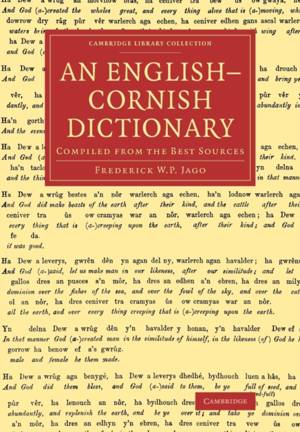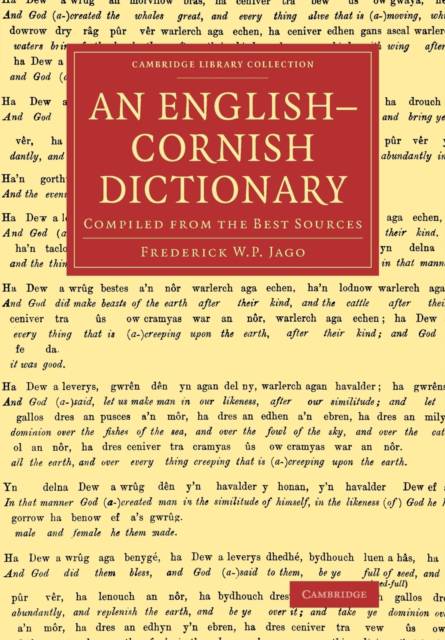
- Afhalen na 1 uur in een winkel met voorraad
- Gratis thuislevering in België vanaf € 30
- Ruim aanbod met 7 miljoen producten
- Afhalen na 1 uur in een winkel met voorraad
- Gratis thuislevering in België vanaf € 30
- Ruim aanbod met 7 miljoen producten
Zoeken
€ 66,45
+ 132 punten
Omschrijving
Cornish had all but died out as a spoken language by the middle of the eighteenth century. However, it experienced a slight resurgence in the nineteenth century, spurred by increased scholarly interest. Published in 1887, this dictionary played a role in preserving Cornwall's linguistic heritage. Compiled by Frederick W. P. Jago (1817-92) and intended as a supplement to existing Cornish word lists and glossaries, it was the first resource to provide Cornish translations for English words and phrases. Jago attempts to provide literary citations for the entries wherever possible, but does not manage to do this throughout, observing that 'life is short, art is long'. Appendices include literal translations of biblical texts such as Genesis and the Ten Commandments. Also by Jago, The Ancient Language, and the Dialect of Cornwall, with an Enlarged Glossary of Cornish Provincial Words (1882) is also reissued in the Cambridge Library Collection.
Specificaties
Betrokkenen
- Auteur(s):
- Uitgeverij:
Inhoud
- Aantal bladzijden:
- 242
- Taal:
- Engels
- Reeks:
Eigenschappen
- Productcode (EAN):
- 9781108071628
- Verschijningsdatum:
- 2/10/2014
- Uitvoering:
- Paperback
- Formaat:
- Trade paperback (VS)
- Afmetingen:
- 170 mm x 244 mm
- Gewicht:
- 390 g

Alleen bij Standaard Boekhandel
+ 132 punten op je klantenkaart van Standaard Boekhandel
Beoordelingen
We publiceren alleen reviews die voldoen aan de voorwaarden voor reviews. Bekijk onze voorwaarden voor reviews.








